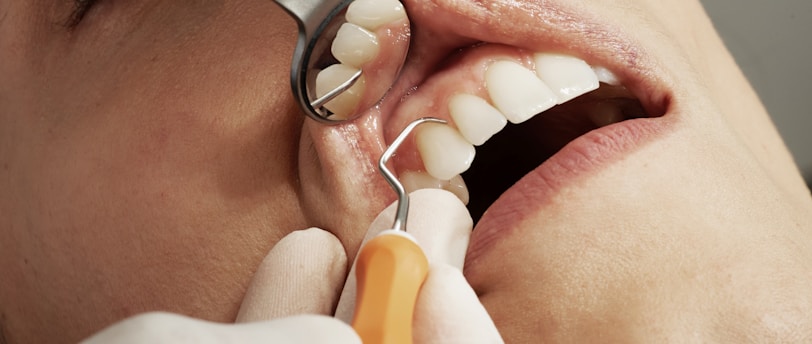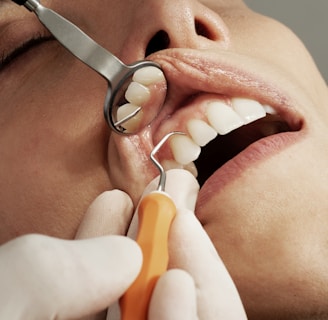Can Cutting Calories Help Reduce Gum Disease? Exploring the Science
NUTRITIONHEALTH
Dr. Sonali Uppal
10/5/20232 min read
Introduction
Gum disease, also known as periodontal disease, affects nearly half of Americans aged 30 and older and is a common oral health concern. It can lead to gum inflammation, tooth loss, damage to the jawbone, and even increase the risk of heart and lung diseases. While maintaining good oral hygiene practices such as regular brushing and flossing is essential for preventing gum disease, recent research from King's College London suggests that calorie restriction may also play a role in slowing down its progression. In this article, we will delve into the study's findings and explore whether cutting calories could help reduce gum disease.
The Study
Researchers at King's College London conducted an analysis of various studies involving both humans and animals to investigate the potential benefits of restricting daily calorie intake as a means to combat gum disease. They found that caloric restriction might have the potential to reduce the local and systemic inflammation associated with gum disease, ultimately slowing down its progression.
Caloric Restriction and Gum Disease
Caloric restriction typically involves reducing daily calorie intake to a range of 500 to 1,300 calories for short durations. This approach can be applied with or without additional physical exercise. The study suggests that such caloric restriction could lead to a reduction in the hyper-inflammatory state often seen in individuals with gum disease.
Periodontal disease is the advanced stage of gingivitis, characterized by swollen and red gums that have pulled away from the teeth. The infection can result in the loss of teeth and damage to the jawbone. While poor oral hygiene is a primary cause of gum disease, the study suggests that a healthy and more restrictive caloric intake could potentially complement other preventive measures.
Caution and Further Research
It's important to approach caloric restriction with caution, especially if it involves significantly reducing daily calorie intake. Extreme calorie restriction can have adverse effects on overall health and nutrition. Therefore, individuals considering this approach should consult with a healthcare professional to ensure that it is done safely and does not compromise their well-being.
While this study is intriguing, it's crucial to recognize that it suggests a potential benefit rather than a definitive treatment for gum disease. Further research is needed to validate the effectiveness of caloric restriction as a therapeutic method for managing gum disease.
Maintaining Good Nutrition and Oral Hygiene
Regardless of the potential benefits of caloric restriction, proper nutrition, and daily oral hygiene practices remain fundamental for preventing and managing gum disease. Registered nurse Llinos Connolly from Benenden Health advises individuals to focus on eating three balanced meals a day, with an emphasis on whole foods rather than highly processed items that often contain excessive sugar and trans fats. Combining a nutritious diet with regular dental check-ups, brushing, and flossing can significantly contribute to oral health.
Conclusion
While the study from King's College London raises intriguing possibilities regarding the role of caloric restriction in reducing gum disease progression, it is not a standalone solution. Maintaining proper nutrition, practicing good oral hygiene, and seeking regular dental care continue to be the cornerstone of gum disease prevention and management. If you are considering caloric restriction as part of your oral health strategy, consult with a healthcare professional to ensure it aligns with your overall well-being. Further research is needed to confirm the effectiveness of this approach, but it offers hope for potential new avenues in the fight against gum disease.


